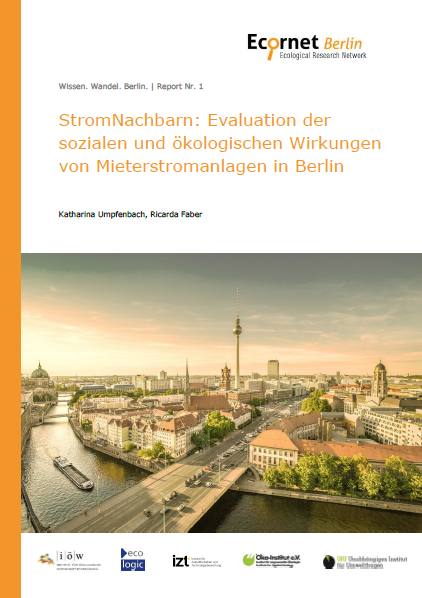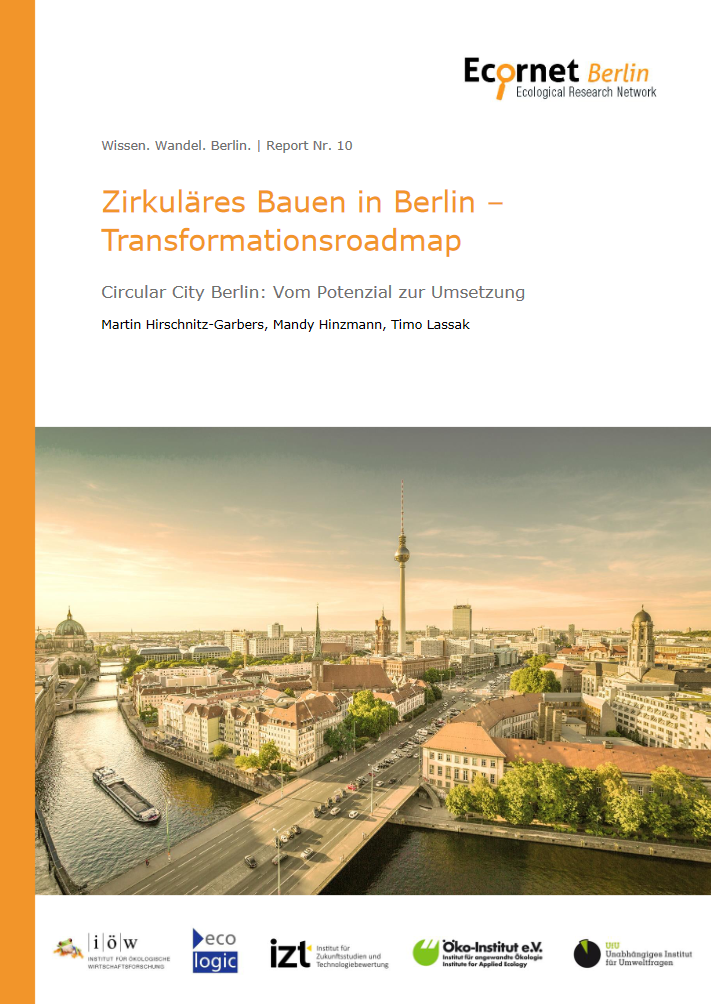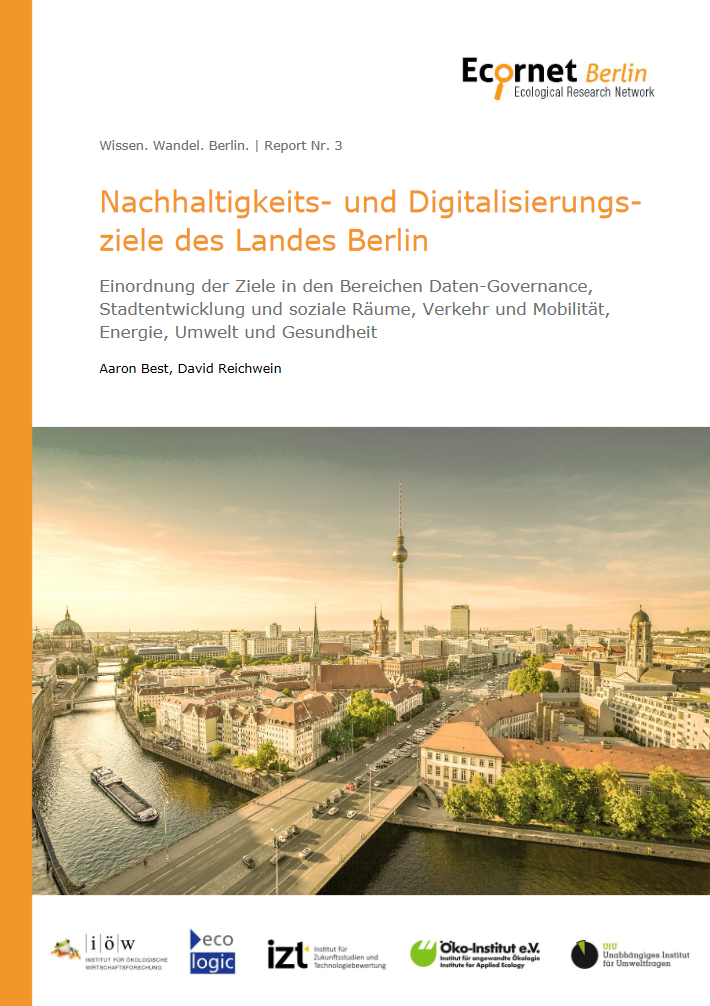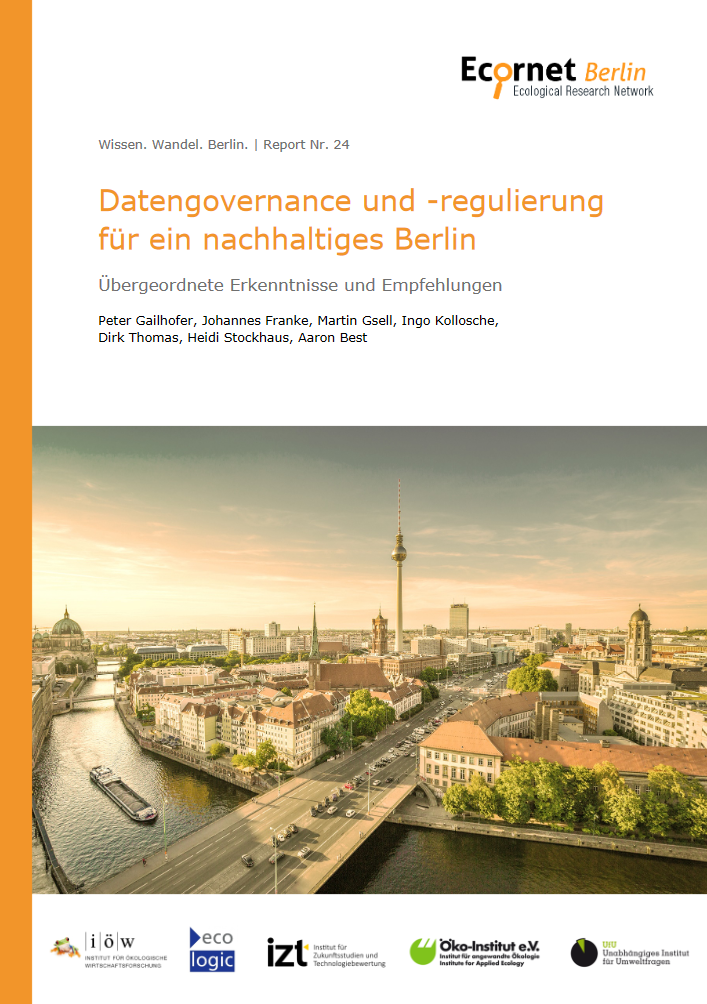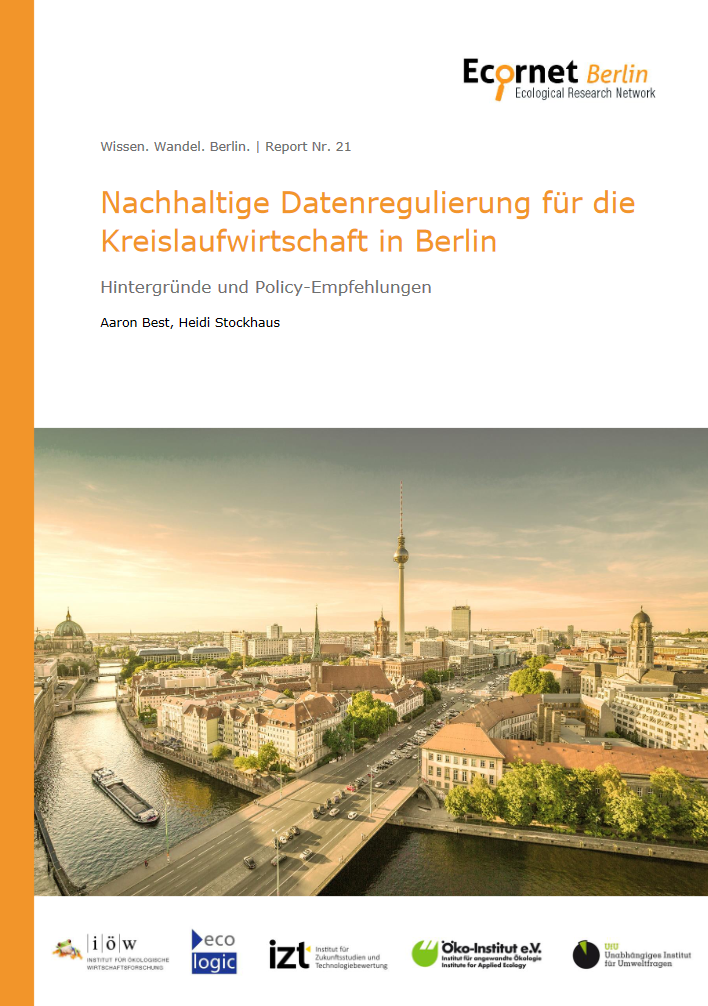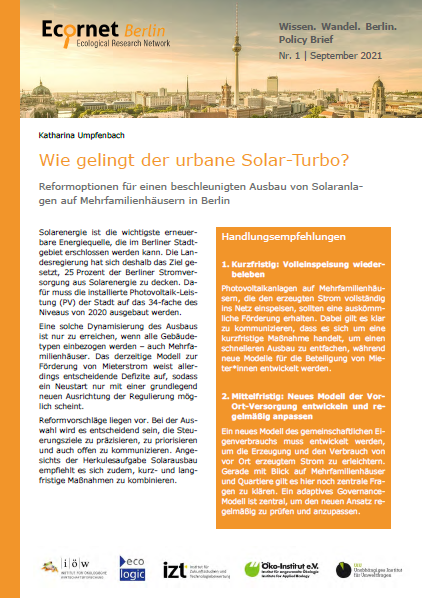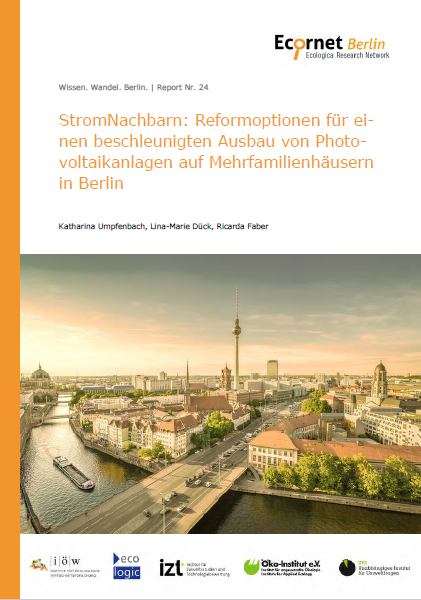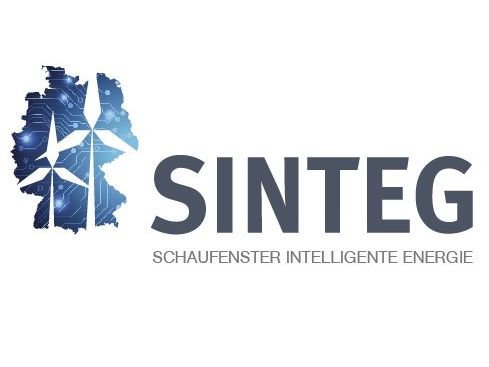Tenant electricity systems generate solar power on apartment buildings and deliver it directly to the households in the building. In a new study, Katharina Umpfenbach and Ricarda Faber evaluate the effects of the existing tenant electricity systems in Berlin. The bottom line: Berlin's tenant electricity projects have positive ecological and socio-economic effects, but these remain low compared to the technically available potential. The government's goal of covering a quarter of the city's electricity needs with solar energy can only be achieved with massively accelerated expansion. Under the existing regime, such dynamism cannot unfold. The framework needs to fundamentally change so that the full potential can be exploited for all plant types and sizes.
According to our data analysis, 74 PV tenant electricity projects with a total installed capacity of 12.6 MWp were in operation in Berlin at the end of 2020. So far, less than 1% of the existing tenant electricity potential has been used. The plants save around 4,100 t of CO2 per year. This corresponds to just under 0.1% of Berlin's energy-related CO2 emissions in 2019.
Tenant survey in two building complexes with tenant electricity
Our survey shows that participants view tenant electricity positively - both from an ecological and an economic point of view. Especially for households with a net income below the Berlin median income, the low price is the most important reason to choose a tenant electricity contract. In addition, tenant electricity users rate the energy transition more positively than the population average. The purchase of tenant electricity is seen as an option not only to benefit financially from the energy transition, but also to actively contribute to climate protection.
Various obstacles impede a dynamic expansion of tenant electricity. The regulatory framework enables only a narrow range of projects to reach break-even. Even these projects often use only a share of the available roof areas. Projects on buildings with less than 20 residential units tend not to be profitable.
The research project "Knowledge. Transformation. Berlin."
The report is a result of the ElectricityNeighbours project, which Ecologic Institute and the Institute for Ecological Economic Research (IÖW) are jointly implementing. ElectricityNeighbours is part of the collaborative project "Knowledge. Transformation. Berlin. – Transdisciplinary research for a social and ecological metropolis". In this project, the research partnership Ecornet Berlin is developing crucial insights and recommendations for policy makers and stakeholders for Berlin's sustainable urban development in the three thematic areas of climate change, sustainable economy and digitalisation. This unique project pools the knowledge and research competences of five Berlin-based institutes of transdisciplinary sustainability research and develops impulses for a social-ecological future of Berlin. The project is funded by The Governing Mayor of Berlin, Senate Chancellery – Higher Education and Research.
